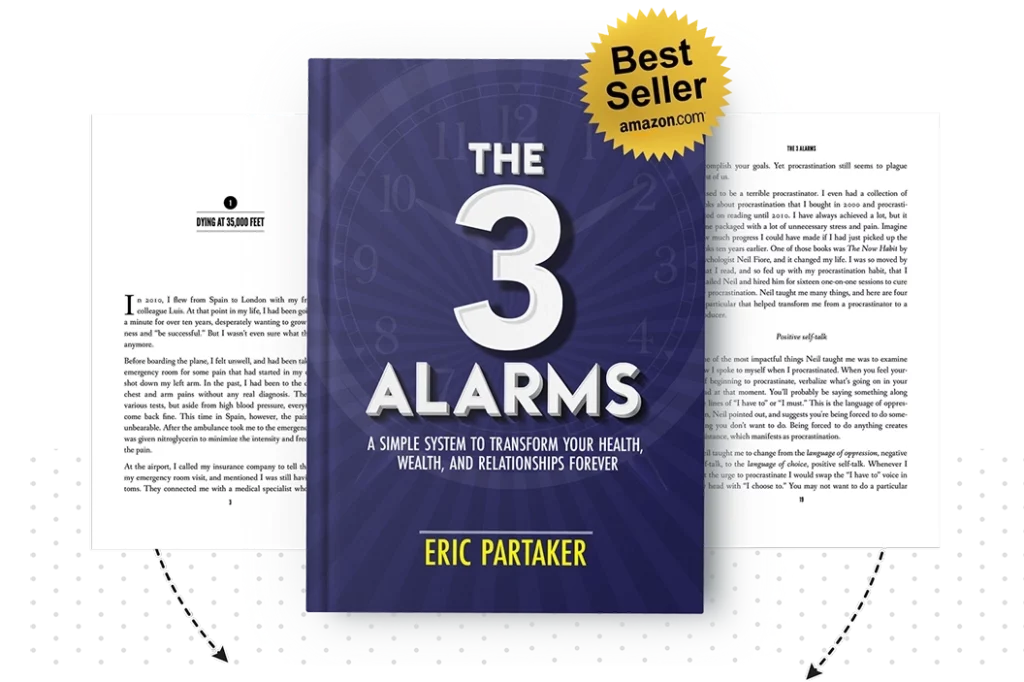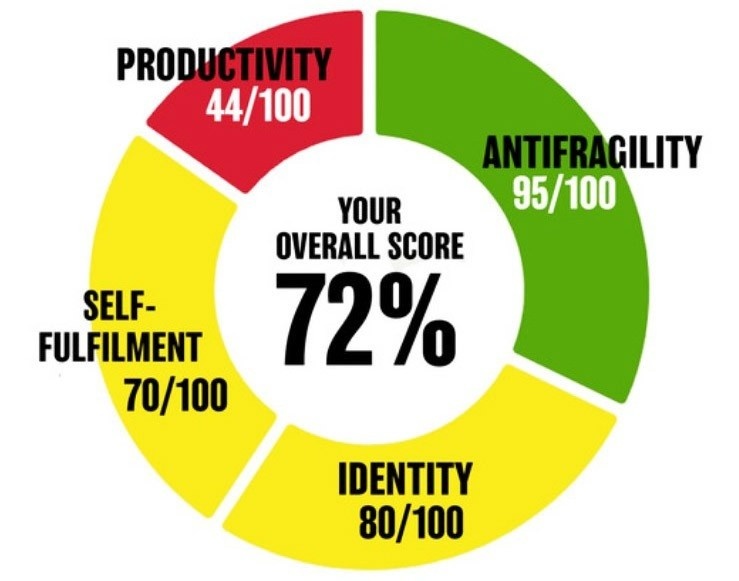SUMMARY
- In this episode, I present five simple ways you can get better at overcoming and bouncing back from those inevitable setbacks that we all experience in our business and life.
- Number one, the first thing that we need to do is to reframe setbacks entirely. Setbacks are not a bad thing and are to be expected. It’s like going to the gym. When we go to the gym, we’re going to stress our body, and then a little bit of recovery is going to lead to growth. Same thing with setbacks. They’re going to occur in business, in our daily life at home, with our health. But it’s all about bouncing back.
- Number two is learning to collect data. When we get a setback, rather than sitting there and emotionally getting all drained, we need to accept that this has happened and now we need to move on. Now we can collect data by asking the question, what can we learn from this?
- Number three is to ask others, because we all have blind spots. It’s another way of collecting data. Ask others from their perspective, what could you have done differently, better, more consistently? How might they have approached it? Ask others for feedback so that you can identify your blind spots and learn from them as well.
- Number four, anticipate future obstacles, and develop plans to mitigate them. With the two previous points, for example, where we’re collecting data, asking ourselves what can we learn from this event? And then similarly, asking others. We then need to action that. Anticipate these obstacles in advance, based on your learnings from yourself and others, and then develop plans to mitigate each of those obstacles before you begin your journey.
- Last but not least, number five, action. We need to take action. It’s so easy when you have a setback to just completely give up and say, “You know what? I need a break for a while.” It’s much more powerful if you jump back on the saddle, and just get right back into it.
TRANSCRIPT
Not happy with your goal performance? Wish you were further ahead than you currently are? Well, the truth is until you master the art of recovering from setbacks, you’re never going to hit those goals, you’re never going to get to where you’d like to be. And today I’m going to give you five simple ways that you can get better at overcoming and bouncing back from those inevitable setbacks that we all experience in our business and life.
Hi, my name is Eric Partaker and I help entrepreneurs, CEOs, leaders, managers, and individuals achieve their best in whatever it is that they’re doing. And a key part of doing that is helping them become a bit more resilient, a bit more anti-fragile in their ability to bounce back from the unexpected from setbacks.
So, number one, the first thing that we need to do to overcome setbacks, and become better at bouncing back is to reframe them entirely. Setbacks are not a bad thing. These obstacles are to be expected. It’s like going to the gym. When we go to the gym, we don’t go to the gym expecting not to stress our bodies. We do that because we’re going to stress our body, and then a little bit of recovery is going to lead to growth. It’s the same thing with setbacks. We have to recognize that they are a way of life. They’re going to occur in business, in our daily life at home, with our health. But it’s all about bouncing back.
A great person to refer to in this regard is the great Roman emperor, Marcus Aurelius. He wrote in his journal that he shouldn’t expect to not get knocked down in life. He wasn’t just referring to the battlefield at the time. He was also just referring to his daily life. That he should constantly expect to be knocked down, but that wasn’t where the game was played. The game wasn’t played necessarily in avoiding the knockdown, as much as it was in how quickly he could bounce back up. He thought of that as a game. It was inevitable he was going to get hit, but again, how quickly could he return to the harmony, as he said.
Another proverb that I like is from Japan. It says, “Fall down seven times, stand up eight.” Again, this is saying that we’re going to get knocked down quite a lot in life. This is normal. We should expect this. But the game is all about, can we get back up one more time? Can we bounce back up just one more time.
Number two to help us bounce back from setbacks is learning to collect data. So when we get a setback, rather than sitting there and emotionally getting all drained and feeling sorry for ourselves and wishing that things were different, we need to accept that this has happened. This has happened, it’s the reality of things, and now we need to move on, and we collect data. What I mean by collecting data is what can we learn from this?
If we go down into the whys behind whatever drove the setback, what were the things? What were the reasons? And really take ownership of that. It’s easy to say that it was always just external factors, or if this person would have done this differently, or had the economy not been in this situation, but that’s sort of passing the buck. We have to take ownership, look at what exactly happened, and despite all those things occurring, what could I have done that could have made some of those things better?
Now, granted, there will be situations where there was absolutely nothing you could have done. But in the majority of times, I find when I’m working with CEOs, with entrepreneurs, with leaders and individuals, I find that in 90% of the occasions, that there was something that they could have done differently, better, more consistently, more often, which would have alleviated or prevented that setback. So collect your data and think, what can I learn from this situation?
Number three, similar to number two is to ask others because we all have blind spots. It’s another way of collecting data. Ask others from their perspective, what could you have done differently, better, more consistently? How might they have approached it? Have they seen you perform in a better way in the past that maybe you weren’t doing in this particular situation? Were you not bringing your A game this time around? Were you playing at a B or a C level, when you could have been playing at a much higher level? Could you have asked for support earlier than you did? Maybe you didn’t ask for any support at all. Maybe you got support and you chose to not listen to it. So ask others for feedback so that you can identify your blind spots and learn from them as well.
Number four, we need to anticipate future obstacles and then develop plans to mitigate them. So with the two previous points, for example, where we’re collecting data, asking ourselves what can we learn from this event? What could have gone better? What could I have done differently? And then similarly, asking others, then we need to action that.
So with this new thing that I’m working on, this new campaign that I’m creating, this new company that I’m building, this new team that I’m trying to form, this new goal that I’m trying to achieve, based on where I’ve experienced setbacks for similar things in the past, what obstacles might appear in my path this time around? And based on my learnings and based on what others told me, how can I fuse that together? And if I anticipate those obstacles happening now, before I begin on the path, before I start the journey, visualize and think through, well, what would I do in each of those situations?
Maybe it’s a planning thing and you could be planning better or getting better advice. Or maybe it’s just a mindset thing, and that you know that it’s inevitable that this might happen along the way, but I’m going to think about it differently, or I’m going to react to it differently. I’m going to do this, whereas in the past, I had a much different approach.
So anticipate these obstacles in advance, based on your learnings from yourself and others today, and then develop plans to mitigate each of those obstacles before you begin your journey. When’s the best time to have a map? Before you go into the woods. When’s the best time to have a compass? Before you start your exploration journey.
And then last but not least, number five, action. We need to take action. It’s so easy when you have a setback to just completely give up, to say, “You know what? I need a break for a while.” It’s much more powerful if you jump back on the saddle, if you get right back into it.
I have a few mantras that help me in this regard. One is tomorrow is going to be a rebound day. So for example, if I don’t have a great day for whatever reason, it could be my own mood, it could be things that just happened in the course of the day, I just know that the next day is going to be awesome. The next day is going to be a rebound day. The next day is only going to be able to go up. But I think that, I have that as a mantra in my head.
Another one that I use quite regularly is never two misses in a row. So it’s easy to fall down and take a knock back, but we have to make sure we don’t string a bunch of days like that together, we don’t let that become the new norm. So how quickly can we get back up and never two misses in a row?
Quick example, let’s say you’ve got a great health routine going, and then suddenly you just fall off. And in the course of a day, you’ve eaten cheesecake, you’ve missed your workout, you didn’t do your meditation, whatever’s in your routine. So the worst thing you can do is just go, “Oh well, that’s out the window now. I’ll just carry on like that, and someday I’ll get back onto it,” or, “I’ll get back onto things next week. I need a break.” The most powerful thing you can do is never two misses in a row. Accept that that’s happened, but the next day, let’s get right back into it.
And another quick mental concept or mantra that I use in this last category about taking action is I like to remember what separates a professional versus an amateur. I’ve talked about this before. And I think of an amateur as somebody who needs to feel like doing something in order to do it, whereas a professional takes action, whether they feel like it or not. Or set another way, an amateur needs feeling to precede action, whereas a professional knows that action generates feeling.
So how does this relate to overcoming setbacks? Well, when we have a setback, we often don’t feel like taking action. Think about it, you’re maybe in a down mood, you just want to give up, and that’s so easy then to slip into amateur mode and let those feelings direct your behavior, direct your will to carry on, your will to charge ahead.
That’s the perfect time to enter, to become the professional, to recognize those feelings, smile at them as you would the antics of a small child and say, “Ah, I’ve heard you before. I know about you feelings, trying to convince me to not move ahead. And instead I’m going to be a pro and I’m going to take action, whether I feel like it or not,” because I guarantee you, once you start taking action again, following that setback, you know this too, deep down inside, I guarantee you that you will create your momentum again. You will reignite that passion. You will start progressing again. You will start marching towards that peak. You will start seeing that finish line again. But it only happens if you take action.
So I hope you’ve enjoyed those five ways in which you can get better at overcoming setbacks because they are inevitable. Remember Mike Tyson’s quote, “Everyone has a plan until they get punched in the mouth,” but how quickly can you get back on top of your game? How quickly can you use all of these tools that I’ve just given you to really step into discomfort and become your best? Because that’s what it’s all about. Your infinite potential lies just on the other side of your comfort zone.




